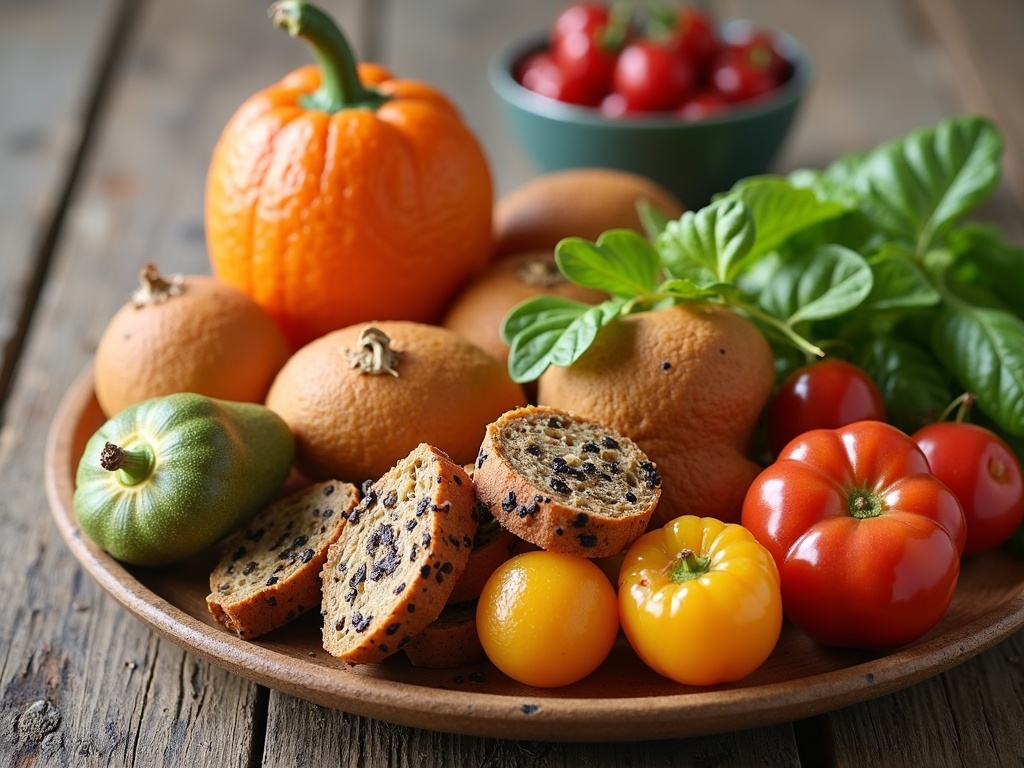Foods That Fight Fatigue in Men: Recharge Your Energy Naturally
Imagine dragging yourself through the day, energy reserves perpetually low. As men, we're often expected to juggle work, family, and fitness, leaving little in the tank. But what if you could conquer that chronic fatigue simply by tweaking your diet? Forget sugary energy drinks and fleeting fixes; let's dive into the world of natural foods that can help you reclaim your vitality and power through your day.
Understanding Fatigue in Men: More Than Just Tiredness
Fatigue isn't just about feeling a little sleepy. It's a persistent state of exhaustion that doesn't improve with rest. For men, fatigue can manifest in various ways, impacting everything from physical performance to mental clarity.
Physical Symptoms: Muscle weakness, decreased stamina, headaches.
Mental Symptoms: Difficulty concentrating, irritability, brain fog.
Emotional Symptoms: Lack of motivation, mood swings, feeling overwhelmed.
Several factors contribute to fatigue in men, including:
Stress: Chronic stress depletes energy reserves.
Poor Diet: Lack of essential nutrients leads to energy crashes.
Lack of Sleep: Insufficient or poor-quality sleep disrupts energy cycles.
Dehydration: Even mild dehydration can cause fatigue.
Underlying Health Conditions: Anemia, thyroid issues, and other conditions can contribute to fatigue.
The Power of Food: Fueling Your Body for Sustained Energy
The food you eat plays a crucial role in determining your energy levels. Processed foods, sugary snacks, and refined carbohydrates provide a quick burst of energy followed by a crash. Opting for whole, unprocessed foods provides a steady release of energy and essential nutrients needed to combat fatigue. Let's explore some of the best foods that fight fatigue in men.
Top Energy-Boosting Foods for Men
Here’s a breakdown of specific foods to incorporate into your diet to fight fatigue and boost your overall well-being:
Lean Protein: The Foundation of Sustained Energy
Protein is essential for building and repairing tissues, but it also plays a vital role in maintaining energy levels. Unlike carbohydrates, protein digests slowly, providing a sustained release of energy and preventing blood sugar spikes and crashes.
Chicken Breast: A versatile source of lean protein, packed with amino acids.
Turkey: Similar to chicken, turkey provides lean protein and tryptophan, which can help improve sleep quality.
Fish (Salmon, Tuna, Sardines): Rich in omega-3 fatty acids and protein, these fish support brain health and reduce inflammation, contributing to sustained energy.
Complex Carbohydrates: Fuel for the Long Haul
Unlike simple sugars, complex carbohydrates are digested slowly, providing a steady stream of glucose for energy. They're also packed with fiber, which aids digestion and promotes satiety.
Oats: A powerhouse of fiber and complex carbohydrates, oats provide a slow-releasing energy source that keeps you feeling full and energized for hours.
Quinoa: A complete protein and complex carbohydrate source, quinoa is packed with essential amino acids, fiber, and nutrients.
Sweet Potatoes: Rich in fiber, vitamins, and minerals, sweet potatoes provide a sustained energy release and support overall health.
Healthy Fats: Essential for Hormone Balance and Energy Production
Healthy fats are crucial for hormone production, brain function, and energy metabolism. Incorporating healthy fats into your diet can improve energy levels and overall well-being.
Avocados: Packed with healthy monounsaturated fats, fiber, and vitamins, avocados provide sustained energy and support heart health.
Nuts and Seeds (Almonds, Walnuts, Chia Seeds): These are excellent sources of healthy fats, protein, and fiber, providing a quick and sustained energy boost.
Olive Oil: A healthy source of monounsaturated fats, olive oil supports heart health and reduces inflammation, contributing to sustained energy levels.
Iron-Rich Foods: Combatting Anemia-Related Fatigue
Iron deficiency anemia is a common cause of fatigue, especially in men who engage in intense physical activity. Iron is essential for carrying oxygen throughout the body, and a deficiency can lead to fatigue, weakness, and shortness of breath.
Spinach: A leafy green powerhouse packed with iron, vitamins, and minerals.
Beef: A good source of heme iron, which is more easily absorbed by the body.
Lentils: A plant-based source of iron, fiber, and protein.
Vitamin-Rich Fruits and Vegetables: Power Up Your Cells
Vitamins and minerals are essential for energy production at the cellular level. Incorporating a variety of colorful fruits and vegetables into your diet ensures you're getting the nutrients you need to combat fatigue.
Bananas: Rich in potassium, which helps regulate blood pressure and muscle function, bananas provide a quick and sustained energy boost.
Berries (Blueberries, Strawberries, Raspberries): Packed with antioxidants, vitamins, and fiber, berries protect against oxidative stress and inflammation, boosting energy levels.
Citrus Fruits (Oranges, Grapefruits, Lemons): Rich in vitamin C, which supports immune function and boosts energy levels.
Hydration: The Overlooked Energy Booster
Dehydration is a common cause of fatigue. Water is essential for virtually every bodily function, including energy production. Even mild dehydration can lead to fatigue, headaches, and decreased cognitive function.
Drink Water Throughout the Day: Aim for at least eight glasses of water per day.
Eat Hydrating Foods: Incorporate water-rich fruits and vegetables like watermelon, cucumber, and celery into your diet.
Limit Sugary Drinks: Sugary drinks can lead to energy crashes and dehydration.
Sample Meal Plan for Fighting Fatigue
Here's a sample meal plan incorporating the foods mentioned above to help you fight fatigue:
Breakfast: Oatmeal with berries and nuts, or a protein smoothie with spinach, banana, and protein powder.
Lunch: Grilled chicken salad with mixed greens, avocado, and olive oil dressing, or a quinoa bowl with roasted vegetables and chickpeas.
Dinner: Baked salmon with sweet potato and steamed broccoli, or lentil soup with whole-grain bread.
Snacks: A handful of almonds, a banana, or a small yogurt with berries.
Beyond Food: Lifestyle Changes to Combat Fatigue
While diet plays a crucial role in fighting fatigue, it's essential to address other lifestyle factors that can contribute to low energy levels.
Prioritize Sleep: Aim for 7-9 hours of quality sleep per night. Establish a regular sleep schedule and create a relaxing bedtime routine.
Manage Stress: Practice stress-reducing techniques such as meditation, yoga, or spending time in nature.
Exercise Regularly: Regular physical activity can boost energy levels and improve overall well-being. Aim for at least 30 minutes of moderate-intensity exercise most days of the week.
Limit Alcohol and Caffeine: While caffeine can provide a temporary energy boost, excessive consumption can lead to crashes and disrupted sleep. Alcohol can also interfere with sleep quality and contribute to fatigue.
When to See a Doctor
If you've made dietary and lifestyle changes and are still experiencing persistent fatigue, it's essential to consult a doctor to rule out any underlying medical conditions. Conditions like anemia, thyroid disorders, sleep apnea, and chronic fatigue syndrome can contribute to fatigue and require medical treatment.
Take Control of Your Energy Levels
Fighting fatigue is a journey, not a destination. By incorporating these energy-boosting foods and lifestyle changes into your routine, you can reclaim your vitality and power through your day. Start small, be consistent, and listen to your body's needs. Embrace the power of food to fuel your body and mind, and you'll be well on your way to a more energetic and fulfilling life. So, ditch the quick fixes and embrace the long-term benefits of a healthy, energy-boosting lifestyle – your body will thank you for it.

